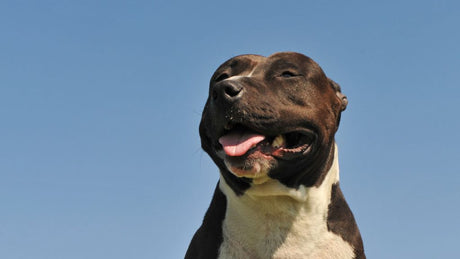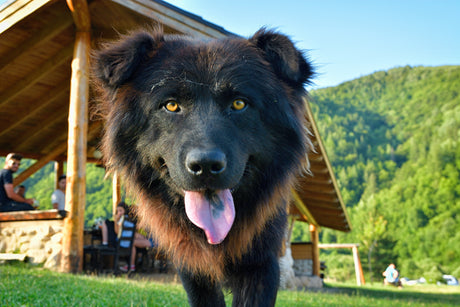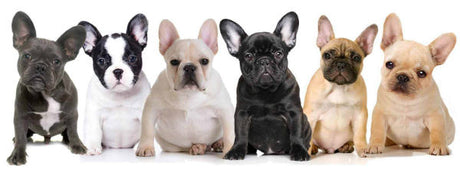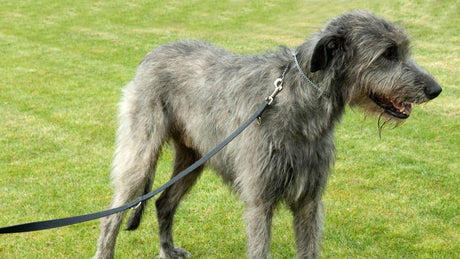- Structural : they are those proteins that make up bone and muscle tissues as well as hair and nails.
- Metabolic : they are those proteins that have an active participation in the physiology of the organism. This group includes enzymes and hormones that serve as catalysts of the metabolic process.
 Proteins are considered all those substances that have direct participation in basic metabolic processes. There are hormones that are proteins and that perform transport functions, for example hemoglobin. In fact, the immune system itself is made up of proteins since antibodies, which are responsible for the body defending itself against diseases, are also protein molecules. In puppies, proteins allow tissues and muscles to be created and formed, therefore, a good amount of protein will help the puppy grow correctly, with health and strength. In adult dogs, proteins serve to maintain muscle mass, hair, skin, bones and maintain the correct functioning of vital systems. As dogs age, their protein needs decrease, but they remain equally necessary.
Proteins are considered all those substances that have direct participation in basic metabolic processes. There are hormones that are proteins and that perform transport functions, for example hemoglobin. In fact, the immune system itself is made up of proteins since antibodies, which are responsible for the body defending itself against diseases, are also protein molecules. In puppies, proteins allow tissues and muscles to be created and formed, therefore, a good amount of protein will help the puppy grow correctly, with health and strength. In adult dogs, proteins serve to maintain muscle mass, hair, skin, bones and maintain the correct functioning of vital systems. As dogs age, their protein needs decrease, but they remain equally necessary.  Dogs receive the necessary amount of protein they require directly from the food they consume, for this reason the diet must be adequate based on feed formulated to cover the nutritional needs corresponding to the life stage in which the dog is, as well as such as their size, breed and general health. In contrast, when we feed our pet inadequately we can cause vitamin and protein deficiencies, which directly affects the dog's quality of life and accelerates the aging process and the possibility of degenerative diseases such as osteoporosis appearing.
Dogs receive the necessary amount of protein they require directly from the food they consume, for this reason the diet must be adequate based on feed formulated to cover the nutritional needs corresponding to the life stage in which the dog is, as well as such as their size, breed and general health. In contrast, when we feed our pet inadequately we can cause vitamin and protein deficiencies, which directly affects the dog's quality of life and accelerates the aging process and the possibility of degenerative diseases such as osteoporosis appearing.
Importance of proteins from the canine diet
The proteins that we supply to our pets through food are of vital importance, as they have the ability to provide them with the amount of essential amino acids they need to synthesize new proteins that will help them repair their tissues and maintain muscle mass. optimal state. The quality of the proteins that the dog requires will depend directly on their digestibility . Those that are digestible are those that contain essential amino acids that cover the animal's requirements, while those of low quality are difficult to digest and have a deficit of amino acids, so we need the former and we only get that in Premium quality foods. Proteins do not accumulate within the animal organism, the body is simply responsible for transporting it to the body tissues that require it and it is used by them, hence the bioavailability and value of the proteins that we provide to our pets is important. since their good health and quality of life depend on it. When the dog ingests excess protein, its body will get rid of it through urine. If excess protein lasts for a long time, it will begin to be stored as fat. So, if the dog is fed with little protein, the animal will show symptoms such as weakness, weight loss and its coat will become rough and dull.
The quality of the proteins that the dog requires will depend directly on their digestibility . Those that are digestible are those that contain essential amino acids that cover the animal's requirements, while those of low quality are difficult to digest and have a deficit of amino acids, so we need the former and we only get that in Premium quality foods. Proteins do not accumulate within the animal organism, the body is simply responsible for transporting it to the body tissues that require it and it is used by them, hence the bioavailability and value of the proteins that we provide to our pets is important. since their good health and quality of life depend on it. When the dog ingests excess protein, its body will get rid of it through urine. If excess protein lasts for a long time, it will begin to be stored as fat. So, if the dog is fed with little protein, the animal will show symptoms such as weakness, weight loss and its coat will become rough and dull.
Finding the right protein balance
Protein can be found in meats, dairy products and eggs and can even be found in some vegetables, grains and legumes. The dog's body does not have the capacity to store protein as it does with fat and other nutrients, which is why protein has to be delivered daily in its diet depending on the breed, age and condition. of health and the type of activities you carry out will have your own need to complete. For example, animals that have heavy work every day, such as guide dogs, hunting dogs, and rescue dogs, are all in constant activity and wear and tear, therefore they require a much greater amount of protein than a dog that lives a long life. all the more sedentary. Therefore, it is appropriate for dogs that perform demanding activities to be fed with feed with good energy and protein content. The same occurs with pregnant and lactating dogs, which will require a higher nutritional and protein intake to satisfy their body's needs, as is the case with dogs that are injured, sick or in the process of recovery. or convalescence, which require a greater amount of protein to recover satisfactorily. Now that we have learned the importance of our pet receiving a good protein intake in its diet , we need to learn how to choose the right food and for this we need to look at the nutritional table that the feed bags have on the back. It shows the percentage of vitamins, minerals and proteins that the dog will be ingesting with each serving of food and depending on the ingredients involved in the preparation of the food, we can determine the quality of the protein that we are feeding our pet. Protein sources such as chicken, beef, ox, lamb and fish are preferable and in concentrations greater than 20%.
The same occurs with pregnant and lactating dogs, which will require a higher nutritional and protein intake to satisfy their body's needs, as is the case with dogs that are injured, sick or in the process of recovery. or convalescence, which require a greater amount of protein to recover satisfactorily. Now that we have learned the importance of our pet receiving a good protein intake in its diet , we need to learn how to choose the right food and for this we need to look at the nutritional table that the feed bags have on the back. It shows the percentage of vitamins, minerals and proteins that the dog will be ingesting with each serving of food and depending on the ingredients involved in the preparation of the food, we can determine the quality of the protein that we are feeding our pet. Protein sources such as chicken, beef, ox, lamb and fish are preferable and in concentrations greater than 20%.
Other articles that may interest you:












